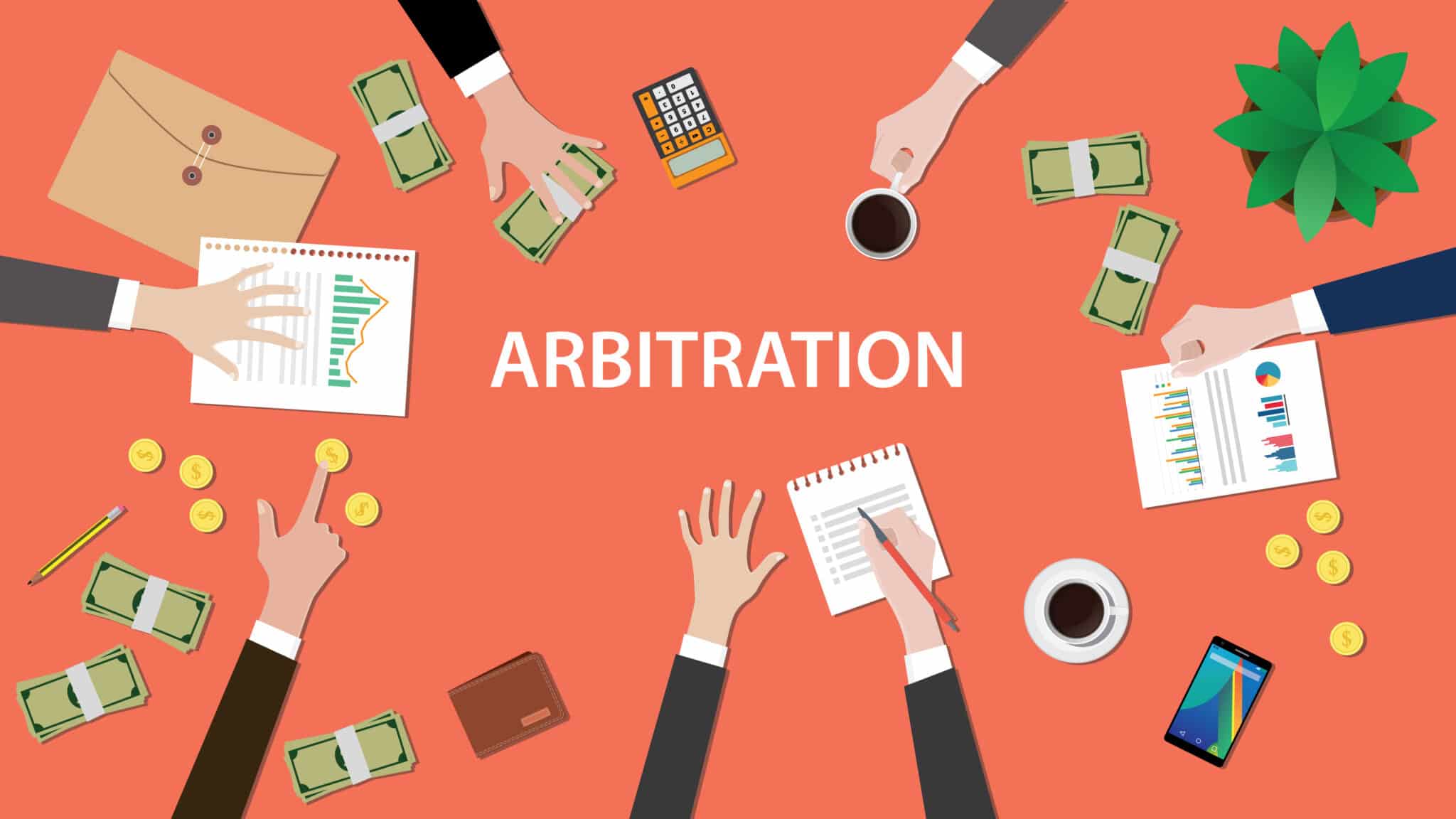
How Legal Transcription Services Can Protect Attorneys from Malpractice Claims
October 25, 2023
How Transcription Services Are Revolutionizing Workflows in Criminal Law Firms
October 27, 2023Professional Transcription Services in Arbitration: A Comprehensive Guide
Arbitration is increasingly recognized as a streamlined and efficient means of resolving disputes, often bypassing the need for more laborious and costly courtroom battles. While this form of alternative dispute resolution may seem informal, the necessity for accurate, verifiable records remains paramount. This article will explore the crucial role that professional transcription services play in the arbitration landscape.
Why Arbitration?
Arbitration presents an attractive alternative to traditional court proceedings in an age where both time and money are invaluable. Arbitration is typically quicker, less expensive, and can be less confrontational. However, the less formal setting does not negate the need for an accurate and comprehensive record of the proceedings, which brings us to arbitration transcription services.
The Intrinsic Value of Transcripts in Arbitration
Resource for Arbitrators
Arbitrators are often tasked with juggling multiple cases, each with its own set of complexities. A transcript serves as a crucial tool for them, allowing for easy review and recollection of case details when making a final decision.
Legal Utility for Attorneys
Attorneys rely heavily on transcripts to build a robust argument. Whether referencing a statement or tracking inconsistencies in testimonies, a transcript is an indispensable resource.
Empowering the Parties Involved
Transcripts act as equalizers, giving both parties equal access to what was said and presented. This is crucial for future legal endeavors or for filing appeals.
Internal Audit and Regulatory Compliance
For organizations embroiled in commercial disputes, transcripts not only serve as a legal record but also aid in maintaining internal compliance, audits, and regulatory requirements.
How to Get Arbitration Transcripts and Who Pays for Them
In an arbitration hearing, the responsibility for ordering arbitration transcripts falls on the parties involved in the dispute. The claimant, respondent, or both may request transcription services. In some instances, the arbitrator may also request a transcript if it is deemed necessary for the resolution of the case.
As for who pays for the transcripts, the agreement between the disputing parties typically determines payment or the rules of the arbitration institution overseeing the proceedings clarify the responsibility for this cost. Depending on the parties’ agreement, the costs may get split equally, or one party may assume the costs. In some cases, the arbitrator may include the cost of transcription in the final award, assigning responsibility for payment as part of the resolution.
The Utility of Transcripts in Short vs. Long Arbitration Hearings
When it comes to arbitration, the duration and complexity can vary significantly from one case to another. While some disputes may get resolved in a short, single session, others necessitate prolonged hearings spanning days or even weeks. Regardless of the length or intricacy of the arbitration, the utility of a professional transcription service like Trans|IT remains constant, although for differing reasons.
● Short Arbitration Hearings
One might think that a transcript is not essential in shorter arbitration sessions. However, even in these quicker, less complex cases, a comprehensive and accurate transcript may prove invaluable. Arbitrators, attorneys, and parties involved can use these records to recap the proceedings efficiently, ensuring no important details get missed. Furthermore, a transcript acts as an official record, lending legal weight and clarity to the process. It can be particularly beneficial if there are any subsequent legal requirements, such as an appeal or compliance checks, as it provides a verified record of what transpired.
● Long Arbitration Hearings
For more extended, complicated arbitration hearings, the value of a transcript becomes exponentially more critical. With multiple sessions, numerous witnesses, and intricate points of law and evidence, keeping track of everything is a herculean task. In such cases, the transcript serves as an indispensable tool for arbitrators and attorneys. For arbitrators, it aids in decision-making by providing an organized, searchable record of testimonies and arguments. For attorneys, it allows for a meticulous review of details, enabling them to prepare robust arguments or identify inconsistencies in opposing testimonies. Parties involved also benefit, as the transcript serves as a lasting record that can be crucial for future legal endeavors, including possible appeals.
Whether you’re dealing with a short, straightforward arbitration or a long, convoluted one, transcripts offer undeniable benefits for everyone involved. Opting for a high-quality, secure, and accurate transcription service ensures that you have a reliable and comprehensive record of the proceedings, aiding in both decision-making and any future legal necessities.

Choosing the Right Arbitration Transcription Service
Selecting a transcription service is a task that demands attention to detail. Key considerations include:
Accuracy
Athreon’s Trans|IT offers unparalleled accuracy, combining AI technology with human expertise to produce transcripts with 99%+ accuracy.
Security Measures
Arbitration often involves sensitive information. Trans|IT sets the industry standard for secure, confidential transcription services.
Turnaround Time
When legal matters are at stake, time is of the essence. Opting for a service that delivers quick yet accurate results is crucial.
Additional Services
Some transcription services offer additional features like translation, which could be beneficial in cases involving multi-lingual parties.
Why Professional Transcription Trumps Traditional Court Reporting in Arbitration
While court reporters are a staple in traditional court settings, their presence is less common in arbitration hearings. Arbitration is generally more flexible and less formal than court proceedings, allowing for various methods of documentation. Parties can mutually decide on the format and level of formality they prefer for keeping a record of the arbitration session. However, given the often complex and sensitive nature of the issues in arbitration, many opt for professional transcription services as an effective alternative to court reporters. Legal transcription services offer several advantages such as cost-efficiency, high accuracy, and secure handling of confidential information, making them an increasingly popular choice for capturing the details of arbitration hearings.
Cost-Efficiency
Transcription services are generally more cost-effective compared to the traditional method of hiring a court reporter.
Flexibility and Customization
Modern transcription services offer a plethora of formatting and delivery options to meet diverse needs.
Ease of Accessibility and Security
Digital transcripts can be easily and securely stored and shared, increasing their utility manifold.
Elevate Arbitration Outcomes With Legal Transcription From Athreon
The multifaceted benefits of professional transcription in arbitration extend to all parties involved—ranging from the arbitrators and lawyers to the disputing parties and businesses. High-quality, secure, and timely transcription services like Trans|IT are not just a legal necessity but a strategic asset in arbitration cases. In the intricate maze of legal proceedings, every single word counts. Therefore, opting for a transcription service that aligns with the highest industry standards is an intelligent choice. Contact Athreon for a free consultation.





